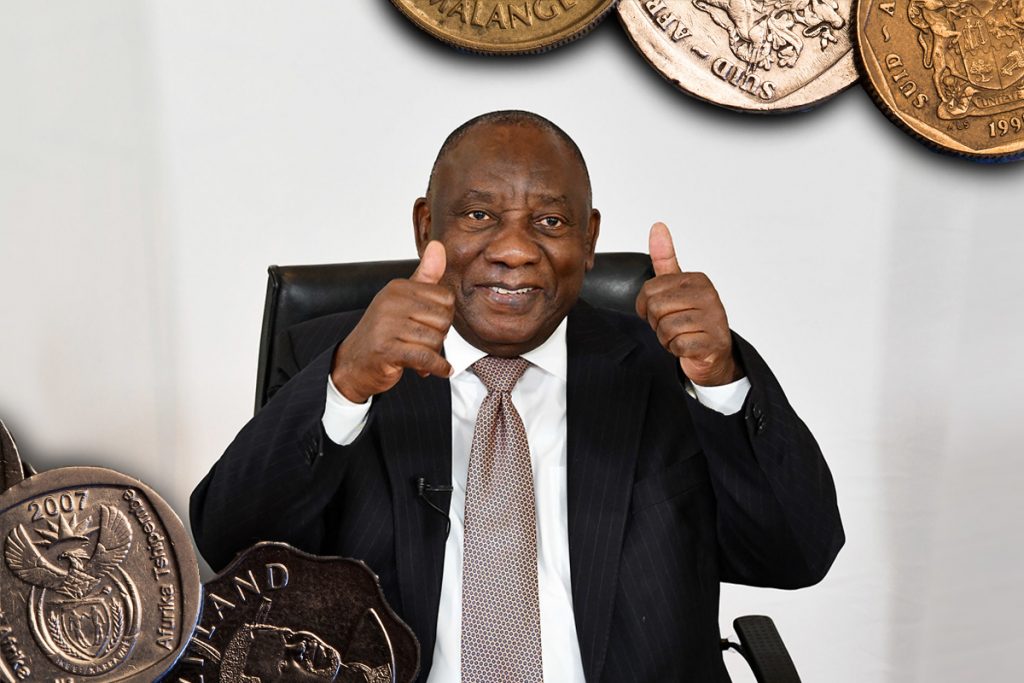The ‘big plan’ to save South Africa can’t go on forever

The private and public sectors are working together in an “unprecedented” move to fix the nation’s most significant challenges – but this relationship will eventually have to end.
On Wednesday, 1 November, Finance Minister Enoch Godongwana will deliver the Medium-term Budget Policy Statement (MTBPS), with the minister having to address both a decline in revenue as company income tax dropped significantly and a serious increase in spending due to a higher-than-expected wage hike of 7.5%.
Although National Treasury has provided several ideas for lowering expenditure, such as combining ministries and departments to save funds, Sisamkele Kobus from Ninety One said that serious policy changes will likely only be implemented in the 2024 Budget.
“The MTBPS in November is only likely to reflect a mark to market for the fiscal slippage and not provide a material policy response yet,” Kobus said.
This sentiment was shared by Business Leadership South Africa (BLSA) CEO Busi Mavuso, who predicts that Godongwana will hold the line.
“We need to see investment, particularly in the infrastructure needed to drive economic growth. The minister has signalled that some infrastructure spending will be delayed as the government seeks to shore up cash to manage its way through the shortfall,” Mavuso said.
“The fiscal discipline that implies is good for business confidence, though infrastructure is key to resolving constraints on the economy. These competing demands make the minister’s job very difficult.”
She added that the public sector could lean on the private sector to ensure that there is investment in infrastructure, such as what we are seeing in the electricity market.
The public and private sector partnership was launched in June of this year when President Cyril Ramaphosa met with business leaders to solve three of South Africa’s biggest challenges inhibiting growth – energy, crime and logistics.
Since the initial meeting, over 100 CEOs from South Africa’s biggest companies offered their expertise to the government.
“These have a specific purpose – to unlock serious constraints that are worsening the business environment … The private sector has the skills and the resources, so it makes sense that we support the government in this way,” Mavuso said.
“But I want to make it clear that this is not a blank cheque nor an invitation to dependency. The objective is to support the development of state’s capacity for it to manage the economy and provide services. This support must be properly regulated.”
She noted that the support from the private sector is temporary and aims at transferring skills to the public sector in a bid to fix things that have gone wrong.
After these issues are effectively tackled, a normal public-private relationship, where the state regulates and provides public services while businesses grow the economy and employment, will return.
“Our partnership, therefore, has an endpoint,” Mavuso said.
Godongwana’s choices
The MTBPS could bring the public-private relationship towards its endpoint if the Minister ensures fiscal discipline.
Mavuso said that effective allocation of resources, departments working together on structural reforms, and ensuring that troubled state-owned enterprises – mainly Eskom and Transnet – can stand on their own two feet will grow confidence.
“Of course, it is not Treasury’s job alone – the operational and governance issues need to be addressed by other cabinet members, but business confidence will be built if we see coordinated action happening between departments,” she added.
“The MTBPS, therefore, is an opportunity to build confidence on several fronts. It can demonstrate fiscal discipline by reining in spending and limiting tax increases or greater debt issuance. It can show that the budget decisions are driven by growth considerations, spending on upskilling and improving the public sector, while also supporting investment.”
“It can support private sector investment by endorsing the state’s commitment to partner with private investors to drive infrastructure investment.”
Read: Transnet failures a risk to South Africa’s biggest company



















